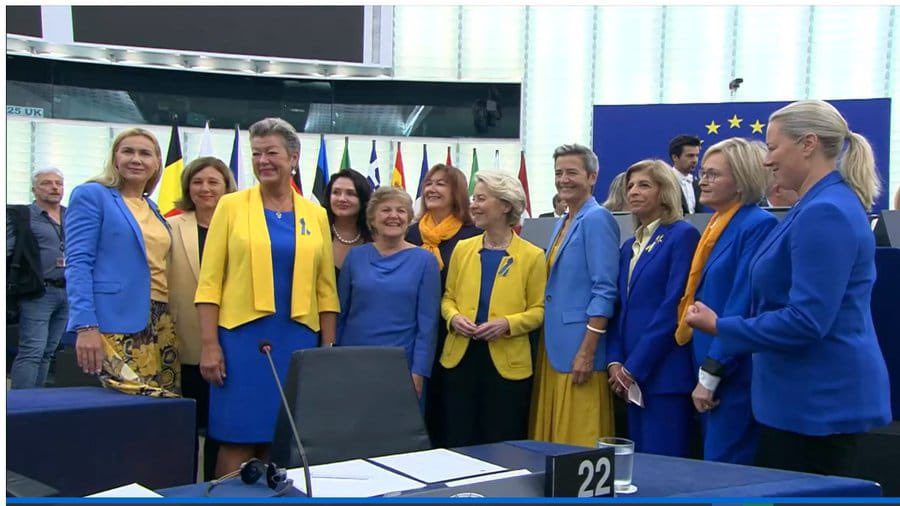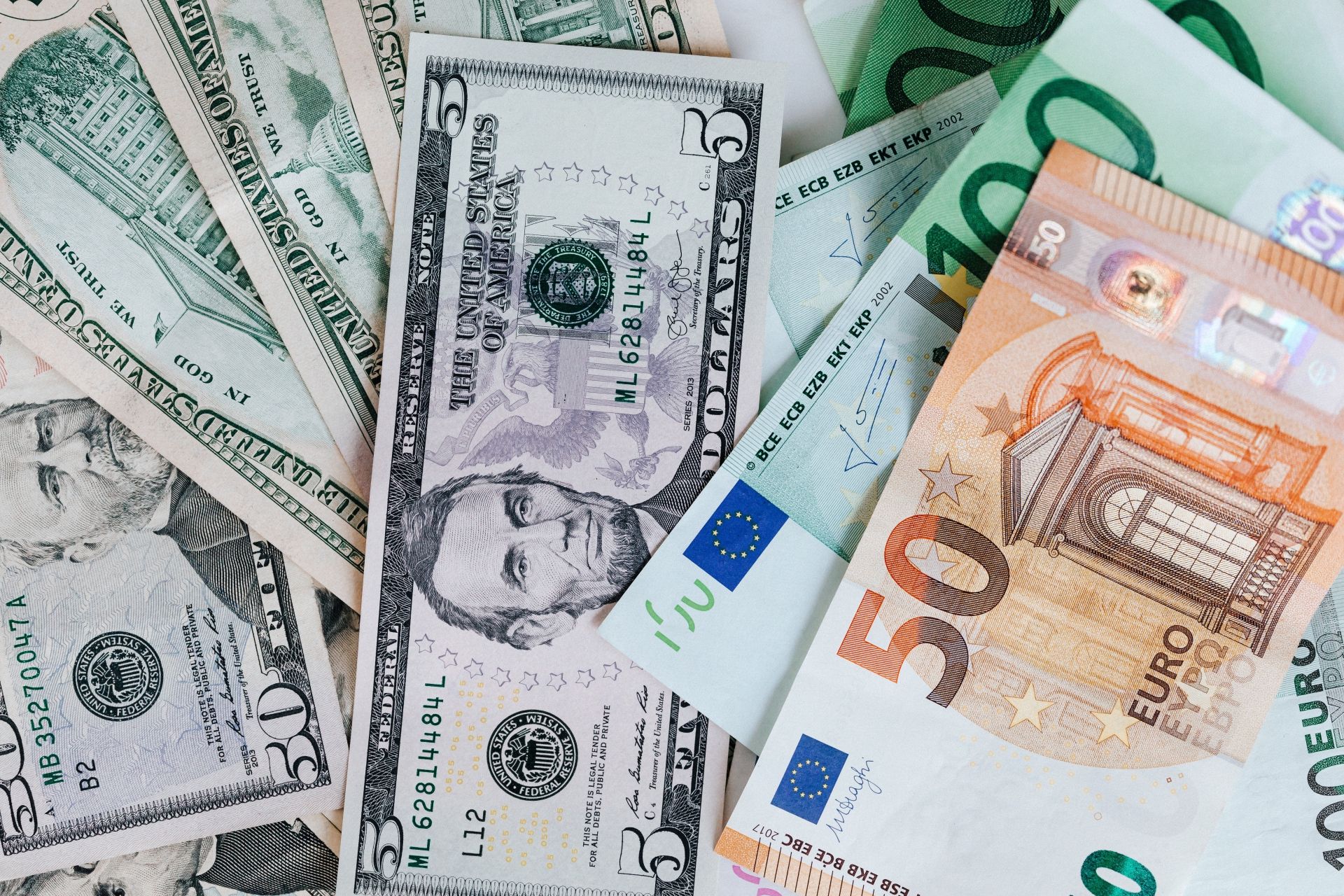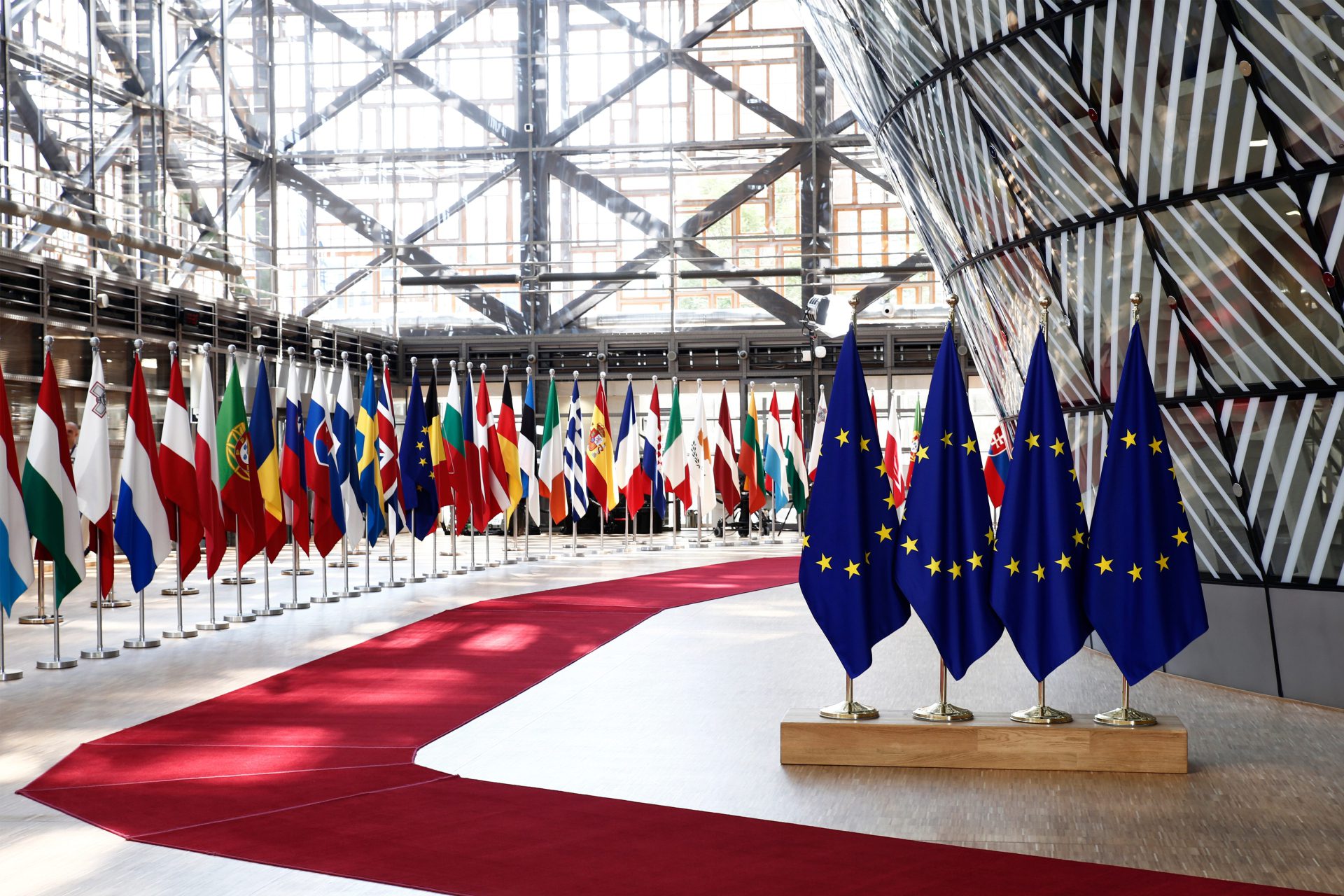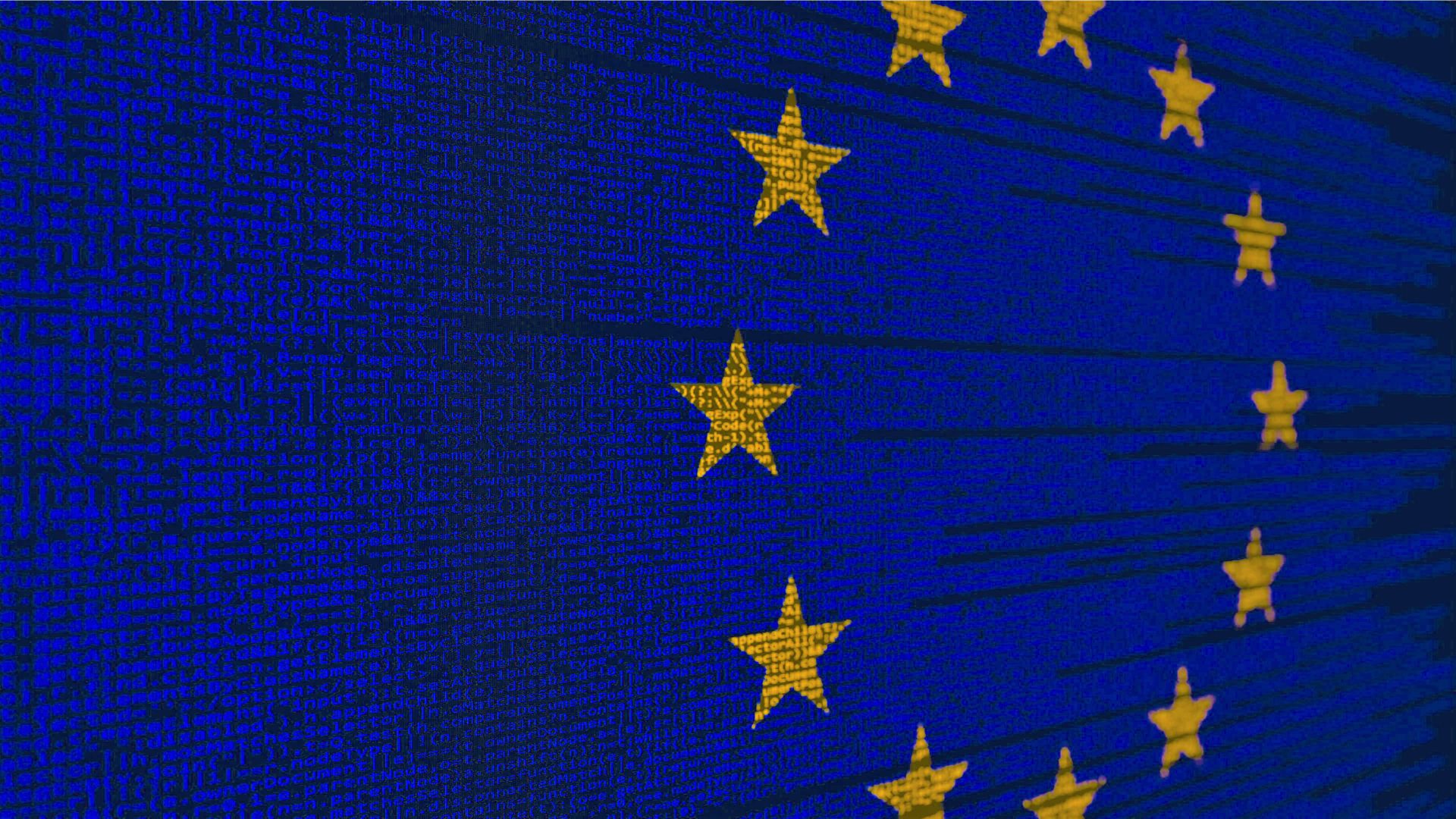What to expect from the European Commission this year? Takeaways of the SOTEU 2022
On Wednesday, Ursula Von der Leyen delivered the annual State of the Union Adress in the European Parliament. In her hour-long speech, she outlined an elaborate range of projects and initiatives that will be the focus of the European Commission for the coming year. The speech was gripped by the influence of the Russian invasion in Ukraine, highlighted even more by the Commissioners’ clothes – all dressed in yellow and blue.
Strong Words
Most apparent of this year’s State of the Union were the strong and definitive statements of the President of the European Commission. Some analysts described the speech as a ‘real war time speech’, symbolized by the presence of Ukrainian first lady Olena Zelenska whose name was addressed several times in the European Parliament. Not only did Von der Leyen explicitly show solidarity with Ukraine and other neighboring countries, she also directly referenced the closing of the research center of the VU Amsterdam in the context of the atrocities against the Uyghur population in China.
Energy
Von der Leyen did not mince her words about Putin having started the EU energy crisis, even before the invasion in Ukraine with Gazprom, the Russian state-owned gas supplier, reducing gas supply to the EU. She was proud about the EU already succeeding in reducing its dependency on Russian gas and will continue to do so. As expected, she called for not just temporary solutions to the energy crisis but a permanent paradigm shift.
Short-term
In the short-term the EU will focus on keeping energy affordable for the many households and businesses that rely on it. In this context, Von der Leyen introduced a price cap on the revenue of companies that generate electricity with low costs and asked fossil fuel business for a solidarity contribution, which would be distributed across society. Also, households and businesses have been addressed to reduce electricity consumption by 10% during peak hours. The implementation timeline of these measures remains unclear and is hard determine considering the different structures of the electricity market in EU countries.
Long-term
In the long-term the EU will focus on renewable energy production as stipulated in the Green Deal. In this light, Von der Leyen introduced a Task Force to investigate how we can have reasonably lower prices for gas. Referring to the Commission’s REPowerEU proposal that aims to produce both 10 million tons of domestic renewable hydrogen production and 10 million tons of H2 imports by 2030, Von der Leyen raised specific attention to hydrogen and introduced the European Hydrogen Bank. This Bank will use money from the Innovation Fund to contribute 3 billion euros to construct a hydrogen economy. A sign that the European Commission is committed to develop an EU hydrogen market, possibly alongside investments done via the IPCEI instrument.
Securing critical resources
With the current energy crisis, comes investment. Von der Leyen highlighted the importance of Next Generation EU called for investments both in sustainability and to invest sustainably and. Also, the question of access to raw materials was elaborately discussed. The President went as far as to say that access to raw materials such as lithium and rare earths would become more important than oil and gas. Therefore, the EU would need to avoid becoming independent to one country which the EU currently aims to realize by the Global Gateway plan. Also, Von der Leyen announced the upcoming Critical Raw Materials Act, that would hopefully follow the “success of the Chips Act”, of which the legislative process is still ongoing.
Health
While health policy is generally not one of the competences of the EU under the Treaties, this year’s SOTEU made references to the EU’s efforts in the field, a sign of the Commission’s ambitions to become more important here. Von der Leyen praised the initiative of two production facilities for vaccines in Africa and discussed similar initiatives in Latin America. Beyond the references to Covid-19, she specifically addressed the mental health challenges a large portion of the EU population is facing. She introduced a new initiative on Mental Health, which will focus on the accessibility, affordability, and appropriateness of support.
Von der Leyen closed the speech with a long-awaited call for a new European Convention, which was met with a loud applause.











